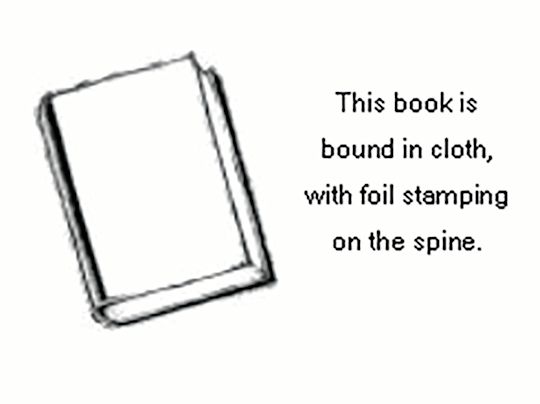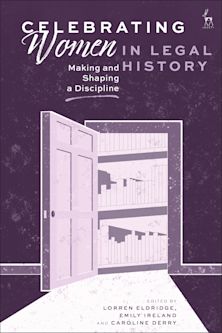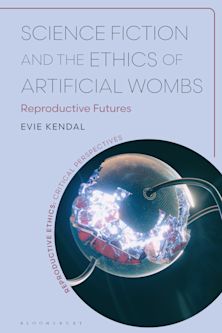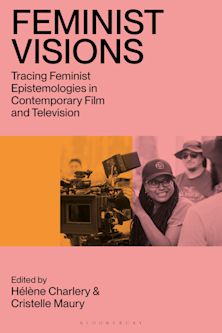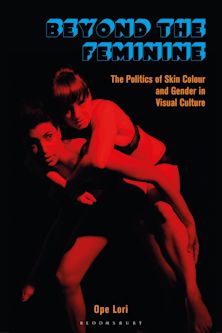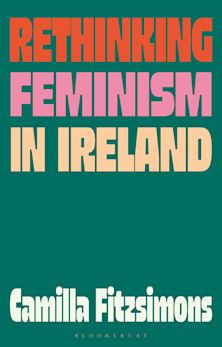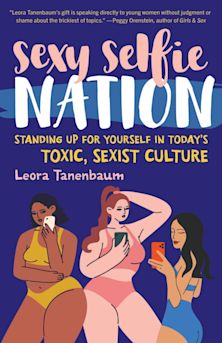- Home
- ACADEMIC
- Gender & Sexuality Studies
- Feminism
- Future Females, The Next Generation
Future Females, The Next Generation
New Voices and Velocities in Feminist Science Fiction Criticism
Marleen S. Barr (Anthology Editor) , Raffaella Baccolini (Contributor) , Marleen S. Barr (Contributor) , Deirdre Byrne (Contributor) , Jeanne Cortiel (Contributor) , June Deery (Contributor) , Johanna Dehler (Contributor) , Jane Donawerth (Contributor) , Sheila Finch (Contributor) , Anne Cranny-Francis (Contributor) , Lisbeth Gant-Britton (Contributor) , Val Gough (Contributor) , Joan Gordon (Contributor) , Elyce Rae Helford (Contributor) , Veronica Hollinger (Contributor) , Despina Kakoudaki (Contributor) , Elisabeth Kraus (Contributor) , Robin Roberts (Contributor)
Future Females, The Next Generation
New Voices and Velocities in Feminist Science Fiction Criticism
Marleen S. Barr (Anthology Editor) , Raffaella Baccolini (Contributor) , Marleen S. Barr (Contributor) , Deirdre Byrne (Contributor) , Jeanne Cortiel (Contributor) , June Deery (Contributor) , Johanna Dehler (Contributor) , Jane Donawerth (Contributor) , Sheila Finch (Contributor) , Anne Cranny-Francis (Contributor) , Lisbeth Gant-Britton (Contributor) , Val Gough (Contributor) , Joan Gordon (Contributor) , Elyce Rae Helford (Contributor) , Veronica Hollinger (Contributor) , Despina Kakoudaki (Contributor) , Elisabeth Kraus (Contributor) , Robin Roberts (Contributor)
This product is usually dispatched within 2-4 weeks
- Delivery and returns info
-
Flat rate of $10.00 for shipping anywhere in Australia
You must sign in to add this item to your wishlist. Please sign in or create an account
Description
Almost 20 years after the publication of Future Females: A Critical Anthology, feminist science fiction pioneer Marleen S. Barr, together with a talented crew of the field's established and emerging theorists, reveal new critical insights in Future Females, the Next Generation. This groundbreaking collection includes contributors from across the globe who find effective venues for imagining feminist thought experiments.
A multinational perspective runs through this innovative volume, focusing on the latest dynamic trends in feminist science fiction. These include such issues as race, gender, cyberfeminism, the media, and new writers in the field. Future Females, the Next Generation, which establishes the generational continuity characterizing a vibrant area of feminist literary and cultural inquiry, boldly goes where no feminist science fiction critical anthology has gone before.
Table of Contents
Chapter 2 Introduction, "Everything's Coming Up Roses": Or, Mainstream Feminist Science Fiction, the Uncola
Part 3 One: Utopia and Dystopia: A New Genre, Ecotopia, and the 1990s
Chapter 4 1 Gender and Genre in the Feminist Critical Dystopias of Katharine Burdekin, Margaret Atwood, and Octavia Butler
Chapter 5 2 Revising Paradise: Judy Grahn's Ecotopia Mundane's World
Chapter 6 3 The Feminist Dystopia of the 1990s: Record of Failure, Midwife of Hope
Chapter 7 4 Post-Phallic Culture: Reality Now Resembles Utopian Feminist Science Fiction
Part 8 Two: Alternative Cyberpunk: Marge Piercy, Jeff Noon, and Pat Cadigan
Chapter 9 5 The Biopolitics of Cyberspace: Piercy Hacks Gibson
Chapter 10 6 A Crossbreed Lonliness: Jeff Noon's Feminist Cyberpunk
Chapter 11 7 Real Lives Complicate Matters in Schrödinger's World: Pat Cadigan's Alternative Cyberpunk Vision
Part 12 Three: Sex/Gender: Eroticizing Cyborgs and Queering Science Fiction
Chapter 13 8 The Erotics of the (Cy)borg: Authority and Gender in the Sociocultural Imaginary
Chapter 14 9 Pin-Up and Cyborg: Exaggerated Gender and Artificial Intelligence
Chapter 15 10 (Re)reading Queerly: Science Fiction, Feminism, and the Defamiliarization of Gender
Part 16 Four: First Contacts: Re-Reading Jaoanna Russ, Ursula K. Le Guin and South Africa, and Eleanor Arnason's Other
Chapter 17 11 Determinate Politics of Indeterminacy: Reading Joanna Russ's Recent Work in Light of her Early Fiction
Chapter 18 12 Truth and Story: History in Ursula K. Le Guin's Short Fiction and the South African Truth and Reconciliation Commission
Chapter 19 13 Incite/On Site/Insight: Implication of the Other in Eleanor Arnason's Science Fiction
Part 20 Five: New Female Heroes: Mexican Women and Chicanas, the Star Trek Scientist, and Tank Girl
Chapter 21 14 Mexican Women and Chicanas Enter Future Fiction
Chapter 22 15 The Woman Scientist in Star Trek: Voyager
Chapter 23 16 Postfeminism and the Female Action-Adventure Hero: Positioning "Tank Girl"
Chapter 24 Postscript: A Real Future Female: Dreams, Truth, and Hope
Chapter 25 Index
Chapter 26 About the Contributors
Product details
| Published | 22 Mar 2000 |
|---|---|
| Format | Hardback |
| Edition | 1st |
| Extent | 250 |
| ISBN | 9780847691258 |
| Imprint | Rowman & Littlefield |
| Dimensions | 235 x 158 mm |
| Publisher | Bloomsbury Publishing |
About the contributors
Reviews
-
Future Females is THE final word on feminist science fiction and edited superbly by the premiere feminist in the field. The collection is wide-ranging and engaging, and entertains as it educates. It does everything that popular culture and feminist scholarship should do, and is a model for future outstanding work.
Emily Toth, author of Ms. Mentor's Impeccable Advice for Women in Academia
-
An important critical work in and of itself. The two books called Future Females together mark the beginning and the latest point of the entire feminist enterprise in the serious consideration of science fiction. Barr's most audacious utopian reading is surely that of 'all the president's penises', that is to say, her treatment of the Leader of the Free World, here celebrated as 'the president who makes love not war' and as one who 'is almost synonymous with his nonphallic penis.'. . . The only politically decent defense of Bill Clinton yet attempted . . . Barr offers not political journalism but a theoretical fiction. Extending Woolf's trope we might hope that this same extraterrestrial visitor would find time to pursue not only the dailynewspaper but also the new Future Females; if so, she-or he? or it?-would learn that patriarchy, while not yet overthrown, is under creative attack in more ways that even the far-seeing Woolf herself could possibly have imagined.
Carl Freedman, professor and director of graduate studies, Louisiana State University, Science Fiction Studies
-
The content is quite valuable. Excellent for feminist and science-fiction collections serving upper-division undergraduates and above.
Choice Reviews
-
Bears evidence to the innovative impact of feminism on science fiction and of feminist theory on science fiction criticism. The bravura displayed in the choice of subject matter, the range of topics and the wittily adapted terminology owe a great deal to the earlier pioneering efforts in the field, also collected by Barr. This collection points out how much that was formerly merely imagined has become a social reality even as its authors must continue to engage in writing toward utopia. Their essays are an exercise in cultural studies of the future.
Brigitte Scheer-Schäzler, University of Innsbruck
-
An important critical work in and of itself. The two books called Future Females together mark the beginning and the latest point of the entire feminist enterprise in the serious consideration of science fiction. Barr's most audacious utopian reading is surely that of 'all the president's penises', that is to say, her treatment of the Leader of the Free World, here celebrated as 'the president who makes love not war' and as one who 'is almost synonymous with his nonphallic penis.'. . . The only politically decent defense of Bill Clinton yet attempted . . . Barr offers not political journalism but a theoretical fiction. Extending Woolf's trope we might hope that this same extraterrestrial visitor would find time to pursue not only the daily newspaper but also the new Future Females; if so, she-or he? or it?-would learn that patriarchy, while not yet overthrown, is under creative attack in more ways that even the far-seeing Woolf herself could possibly have imagined.
Carl Freedman, professor and director of graduate studies, Louisiana State University, Science Fiction Studies









